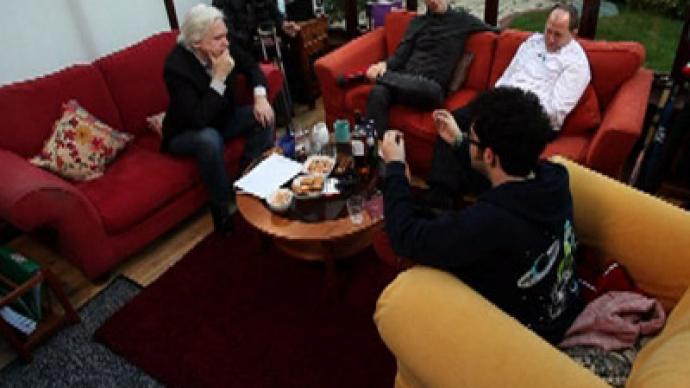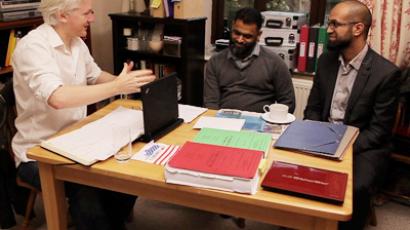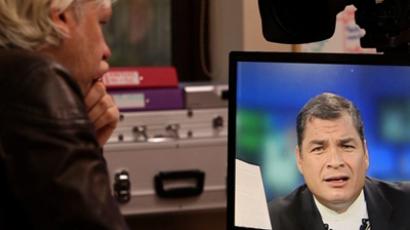Assange Episode 8, Part 2: Taking back our information

Julian Assange continues to look for solutions to the problems of privacy, online communication and freedom, with the people he believes know the answers – the Cypherpunks.
The movement argues against governments and powerful corporations monopolizing information, and says citizens should have a greater right to their own privacy.In this interview they rekindle the atmosphere of the informal chats they used to have before the Wikileaks firestorm, but the subject matter is anything but cozy.If you missed it, you can watch Part 1 of their talk here.
On government
Andy Muller-Maguhn of the German hacker association Chaos Computer Club says that there is only one thing that is stopping total governmental control of information – and that is their lack of unity.“You know, the one good thing about governments is there is never a singular, they are always in plural. That is finally what is going to save us from Big Brother because there is going to be too many who want to be Big Brother and they will have fights amongst each other,” he says.Jacob Appelbaum, a cyber freedom advocate, insists that the problem of personal liberty does not just exist in obviously repressive states.“People in the West love to talk about how the Iranians and Chinese and North Koreans – they need anonymity and they need freedom and they need all that stuff but we don’t need it here. We consider generally that Sweden is a pretty great place and yet you can see that when you fall out of favor with the people in power that you know you don’t end up in a favorable position.”
On the Internet
Applebaum believes the solution to the problems of the web are not greater controls, and even the problems that are created by the internet – such as illegal pornography – should be dealt with without damaging the web itself. “The answer is not to destroy a medium or to police that medium. It is when you find evidence to prosecute the crimes that the medium has documented. It is not to weaken that medium; it is not to cripple society as a whole over this thing.”Julian Assange also restates his belief that information is a means for elites to maintain power over the people in ways that are not fair.“Powerful groups have such a vast amount of secret material now that it dwarfs the amount of publicly available material, and the operations of Wikileaks are just a percentage fraction of this privately held material,” Assange concludes. “So when you look at the balance between powerful insiders knowing every credit card transaction in the world, shadow states of information that are starting to develop and swapping with each other and developing alliances and connections with each other, and into the private sectors and so on versus the increased size of the commons, then the Internet is a common tool for humanity to speak to itself, and to increase its power…”Watch it here on RT.














